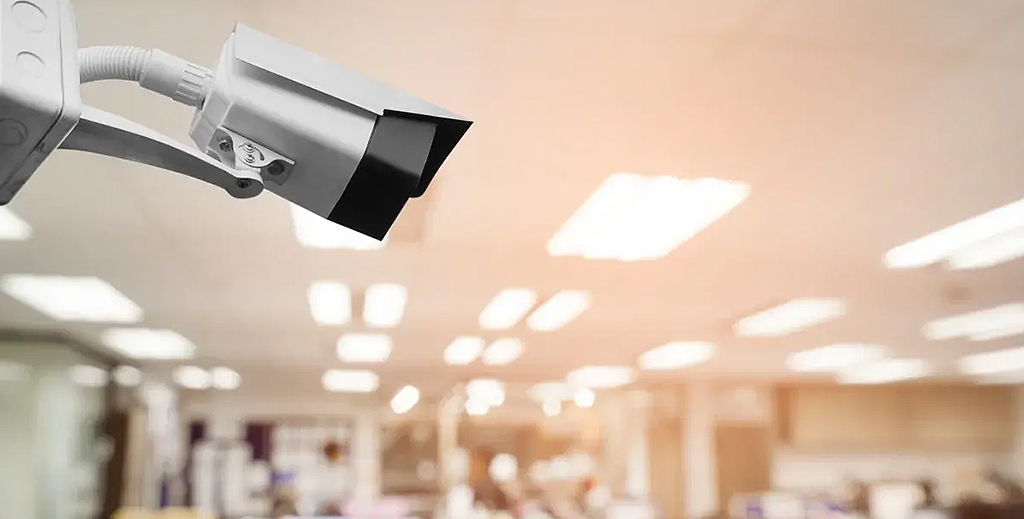
Closed circuit television or CCTVs are one of the most innovative technologies ever built. Providing video surveillance, security, and evidence collection, the revolutionary tool has played a vital role in deterring crimes and improving the lives of people and businesses across various industries including the medical sector. The use of CCTV in healthcare has become a standard feature worldwide.
Hospitals are essentially large environments where a large number of people come for appointments, admission, medical care and more. Suppose an incident happens, it’s important to ensure the safety measures for the patients and hospital staff. This is where CCTV helps to deter such scenarios and helps to make hospitals an easy and safe place to go for care. In this article, we are going to learn why hospital video surveillance is essential and how it enhances security, ensures the safety and protects privacy.
Understanding the importance of CCTV in hospitals
Security of the people is a major concern in busy and sensitive environments like hospitals. One of the best ways to ensure this is by installing CCTV cameras in hospitals at strategic places. The benefits offered by a fully implemented CCTV system in the healthcare sector are huge and let’s see what they are:
Increased Staff Safety
First things first, the safety of the people and staff is of primary importance. Enabling hospital video surveillance through CCTV cameras helps deter dangerous acts against the hospital and its inhabitants. This essentially results in creating a safer work environment, job satisfaction and trust.
Better Patient Monitoring
If you thought CCTVs were just for security only, you are wrong. These tools can play a vital role in patient care including monitoring patients in critical areas, and staff in their working units. In an emergency, this extra layer of surveillance allows the swift response of medical personnel.
Deterring Criminal Activity
CCTVs are installed in the hospital premises for a reason. Being a hospital, the occurrence of violent altercations, vandalism, theft or suspicious activity is a possibility. Having hospital video surveillance serves as a potential deterrent to committing such acts since their actions will be recorded.
Evidence Collection
Some unfortunate things can’t be avoided so if such events happen within the hospital premises, it’s important to have evidence and hospital video surveillance proves extremely useful. This capability helps speed up the investigation and legal proceedings and identifies potential areas of security improvement in hospitals.
CCTV Installation For Hospitals
When implementing CCTV cameras, installing them in the right place is crucial to ensure safety. Some of the strategic places for placing surveillance are examined below:
Entry & Exit Points
The most vital points of a hospital premise are its entry and exit points. Installing CCTVs here provides a detailed record of who entered and left. It also helps with deterring unauthorized access, thereby ensuring security.
Emergency Departments
CCTV camera Installation for hospital departments offers real-time monitoring of patients and increased situational awareness to the medical personnel. This enables them to coordinate and attend to medical situations faster and more seamlessly.
Medical Pharmacies
Another use of CCTV in healthcare is in pharmacies. These are often restricted areas containing medicines and medical equipment, some of which may be expensive. To deter potential theft or tampering, installing CCTV cameras provides a visual record of who enters at all times.
Determining The Right CCTV System
Deciding the best CCTV system for your hospital isn’t easy but you can enjoy the elderly home CCTV cameras benefits by considering these factors first:
Camera type
You can choose from a variety of camera types for installation in hospitals. This includes dome cameras that offer discreet monitoring, bullet cameras for monitoring wider space or pan-tilt-zoom cameras that offer flexible movement and zoom capabilities.
Video quality
When deciding on the use of CCTV in healthcare, try to choose cameras that have high-definition video resolution and night vision capabilities. This results in producing clear footage of events happening. The night vision helps with capturing footage in low-light conditions.
System scalability
Always try to implement a CCTV surveillance system that offers extension capabilities such as adding additional cameras. This is an essential step particularly if the hospital complex is expanding or undergoing renovations.
So, that is all about the importance of CCTV in hospitals and the benefits it offers in the long run. No matter whether your healthcare institution is small or large, it is important to secure the premises and the lives of the people inside it through the use of CCTV in healthcare. Was this blog helpful to you? Let us know in the comments or visit PurpleRock Dubai website.